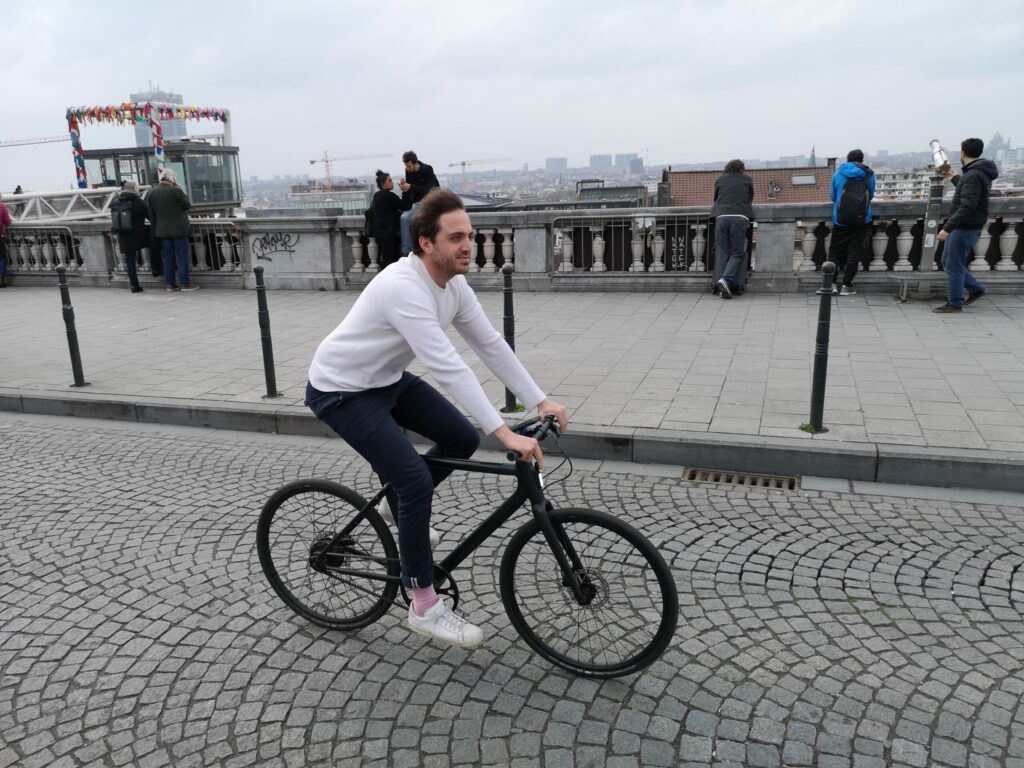More than one in four Belgians used an electric bicycle in 2023.
According to a survey published by the FPS Mobility on Tuesday, the number of e-bike riders rose from 24% in 2022 to 28% in 2023. Findings are based on responses from 6,240 participants aged between 18 and 79.
Flanders saw the greatest increase, where a regular cyclist living outside a major city uses an electric bike more often than a non-electric one. Furthermore, "13% of people using non-electric bikes are thinking of replacing it with an electric bike."
For those getting around by different transport means, mobility trends remain largely unchanged. Although e-bikes are becoming more popular, they are not necessarily the transportation of choice and tend to be a secondary means of transport, with most riders opting to walk or drive more often than taking the bike.
Still, the report marks their progress, clarifying that "bikes are used at least three times a week by more than half the population."
More broadly, two-thirds of Belgians use public transport and while just over half (57%) cycle regularly. Cycling is markedly more popular in Flanders (76% of respondents often take a bike) than in Brussels (37%) and Wallonia (31%). Public transport is more popular in the cities, with 57% of Brussels residents using it at least once a week compared to 18% in Flanders and Wallonia.
Not just electric
The growing popularity of e-bikes has generated a wider boost for the cycling industry, which recorded 19% growth in 2022. The sale of 101,786 e-bikes is partly behind this momentum.
Cycling in general has taken off in the Brussels-Capital Region, despite lagging behind Flanders. With interest soaring during the Covid-19 pandemic, the capital city's cycling infrastructure expanded to 513km in length, including two-way cycle paths, marked paths and shared cycle and footpaths.
However, the space currently dedicated to bikes has struggled to meet the needs and concerns of the city's cyclists. A survey conducted last September revealed that 55% of cyclists do not feel safe on Brussels' roads, and there is a sense that the cycling network lacks coherence.

